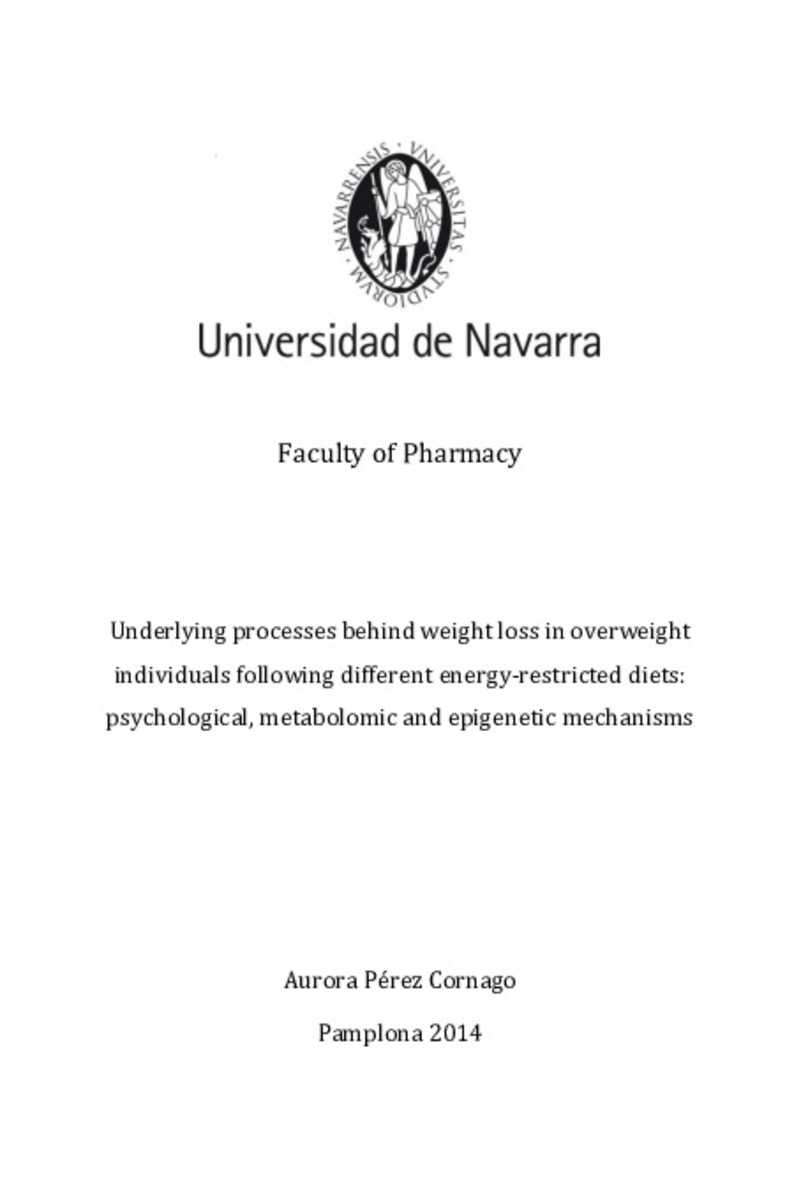Underlying processes behind weight loss in overweight individuals following different energy-restricted diets: psychological, metabolomic and epigenetic mechanisms
Palabras clave :
Materias Investigacion::Farmacia
Enfermedades de la nutrición
Nutrientes
Psicología
Metabolismo energético
Fecha de publicación :
2014
Fecha de la defensa:
26-sep-2014
Editorial :
Servicio de Publicaciones de la Universidad de Navarra
Cita:
PEREZ CORNAGO, Aurora. “Underlying processes behind weight loss in overweight individuals following different energy-restricted diets: psychological, metabolomic and epigenetic mechanisms”. Martínez, A. y Zulet, M.A. (dirs). Tesis doctoral. Universidad de Navarra, Pamplona, 2014
Aparece en las colecciones:
Estadísticas e impacto
0 citas en

0 citas en

Los ítems de Dadun están protegidos por copyright, con todos los derechos reservados, a menos que se indique lo contrario.







